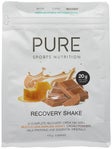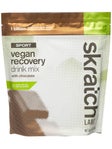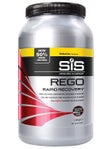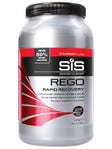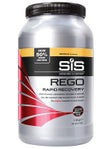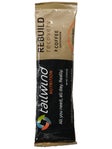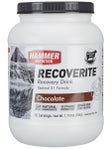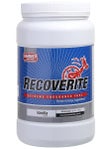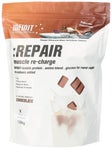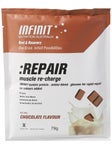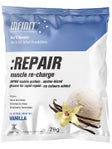Nutrition for Recovery
How to Get the Most Out of Your Workout By Fueling Your Body for Maximum Recovery
When most athletes think about performance improvement, they imagine monster workouts and training sessions that push their limits and lead to massive gains. While it's true that faster times and greater strength doesn't come without a great deal of work, it also doesn't come without an equally important piece of the puzzle: adequate recovery. When it comes to recovery, post-exercise nutrition can either boost the effects of your workout, or wreak havoc on your ability to see performance improvement.

Recovery: It's Kind of a Big Deal
Performance improvement is completely dependent upon recovery. Running stimulates muscular and cardiovascular adaptations, which require a recovery period in order for the body to rebuild itself as a slightly stronger version of itself.
Because recovery is such an integral part of athletic improvement, it should be taken just as seriously as the workout itself. In addition to physical rest, one important component of adequate recovery is proper nutrition.
Following a bout of strenuous exercise, the body needs proper nutrition in order to:
- Replenish muscle and liver glycogen stores
- Synthesize new muscle proteins as part of the repair and adaptation process
- Replace lost fluids and electrolytes
- Aide the immune system in handling the added stress to the body caused by the workout

What, When, and How Much?
When it comes to post-exercise nutrition, the biggest factor is carbohydrate consumption. Glycogen, or the body’s stored form of glucose, is the main fuel source during moderate to high intensity exercise. Without proper carbohydrate fuel to replenish glycogen stores, future workouts will be compromised.
Protein is also important for recovery. During a workout, stress to your muscles actually causes damage. It is the rebuilding from this damage and adaptation to the stress that makes you get stronger. The amino acids in proteins are used by your body to rebuild and repair muscle tissue, a key factor in this adapt-to-get-stronger chain of events. Not just for body builders, protein intake also helps endurance athletes maximize glycogen storage potential and supports the immune system as it copes with the stress imparted from that grueling workout.
Ideally, a mix of carbohydrate and protein should be consumed within 30 minutes following a workout, because it is during this critical window that you can maximize your muscle glycogen stores and optimize the recovery of muscle tissue.
Most experts recommend between 1 - 1.5 grams of carbs per kg of bodyweight for the best post-run recovery. In addition, research suggests that the ideal ratio of carb to protein should be around 3:1 or 4:1.


How Do I Get All This Goodness In Me?
One of the simplest ways to address all of your post-exercise nutritional needs is with a recovery drink. A well-balanced recovery drink contains a mix of carbohydrate and protein, and also encourages the intake of fluids necessary for post-workout hydration, another key factor in proper recovery. Recovery drink mixes are convenient and can be used on their own, or also as a creative supplement to “real food” options, like a blend of fruit and nut butter in a smoothie.
